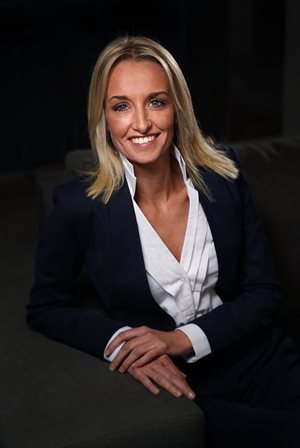
Top stories





Marketing & MediaAds are coming to AI. Does that really have to be such a bad thing?
Ilayaraja Subramanian 18 hours

More news
















As the workplace adapts to new needs, there are some overriding forces driving the change and innovation taking place in tomorrow’s workplaces. Some are established trends that are here to stay, while there are also new trends emerging. Here are five trends that are changing the world of work.
Investment in the development and affordability of solar power and other renewable energy sources will take centre stage in 2023, locally and globally.
Europe and its neighbours are bearing the brunt of skyrocketing gas prices this winter. Businesses are faced with hefty gas bills, and people are struggling to warm their homes sustainably.
In South Africa, employees are returning to the office full-time, catalysed by the prolonged power outages from load shedding and the greater availability of backup power at commercial buildings. In some cases, this comes from solar energy, however, more often from fossil-fuelled generators.
With higher fuel prices and longer power cuts, landlords and tenants alike are having to pay more than ever to keep generators running to avoid business disruption. This also comes with environmental costs.
As companies become more conscious of their impacts on the environment and society, they are striving to do better and rethinking their investment, operations and workplaces to reflect this.
Cutting carbon emissions to tackle the climate crisis is one of the biggest challenges we face right now. Of course, accessing renewable energy is part of this, creating a big overlap between this and the previous trend.
In the year ahead, expect to see investment in advancing green hydrogen, an energy source that burns clean to produce next to no greenhouse gas emissions. The first major green energy pipeline from wind plants is going ahead in the North Sea, created by two major European energy companies, Shell and RWE.
More decentralised power grids - comprising small power generators and storage in communities or individual houses - are likely to emerge to provide power, even if the main grid is unavailable. They are credited with the potential to decrease carbon emissions and unlock more sustainable, democratic power access worldwide.
The world of work has changed, and we are seeing a shift from employee efficiency to employee resilience. This trend became prominent during the pandemic and continues to gain traction and accelerate due to our increasingly fluid environment.
Employees need to be equipped to thrive in a fast-paced, fast-changing world and learn to adapt in order to support mental well-being in a turbulent environment.
The emergence of DALL-E 2, which creates images from text, and ChatGPT, which allows users to have human-like conversations with chatbots, has resulted in much public buzz and the fast and furious mainstream growth of artificial intelligence (AI).
Yet, AI has been a focus area in many businesses for years. Together with automation technology, AI presents enormous growth potential for companies willing to adapt and adopt. As this unlocks new opportunities in the workplace, upskilling, reskilling and equipping employees to work with these technologies will become imperative.
The crossover between the workplace and the metaverse is snowballing. The metaverse is already integrating meetings from digital and physical spaces. It is only a matter of time before real estate leasing becomes immersed in the metaverse, transforming the interior design requirements of corporates forever.
